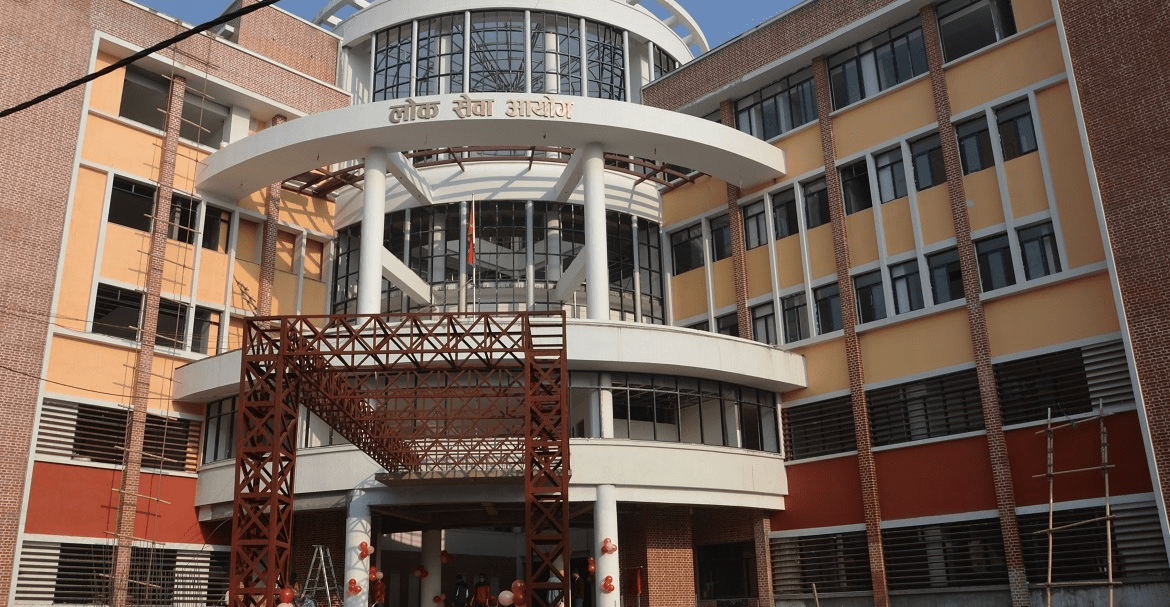KATHMANDU: With the six-year tenure of five officials, including the chairperson of the Commission that ended Tuesday, the Public Service Commission (PSC) is currently without officials.
Even though the Constitutional Council has to recommend the appointment of officials to the Commission, it has yet to recommend any new office bearers.
Meanwhile, with the Council meeting to fulfill the vacancy not taking place, the uncertainty is likely to be prolonged.
According to PSC sources, this uncertainty is sure to have a long-term adverse impact on bureaucracy, held as the permanent government of the country.
PSC Chairman Umesh Prasad Mainali and other members Bindra Hada Bhattarai, Ashok Kumar Jha, Brahmadev Ray and Krishna Chandra Jha who were appointed on March 25, 2015, have completed their tenure.
All programs stalled
Meanwhile, the Commission has postponed all works done by the officials. According to Devi Prasad Subedi, the Information Officer at the Commission, all the works meant to be executed by the office bearers have been stalled until the new office bearers arrive.
Chairman of the Commission Mainali said that the work has been stalled since Wednesday as the employees are not allowed to fulfill their constitutional role.
“We have stopped the work as the constitution and the law do not allow other employees to do the work of the office bearers,” he told Khabarhub.
Information Officer Subedi said all works ranging from vacancy announcement to the promotion of the civil servants have come to a standstill as the Commission is sans officials.
“There will be no new written test, publication of results, interview and recommendation unless the office bearers are appointed,” Subedi said, adding, “As the Chairperson of the PSC will be the Chairperson of the Promotion Committee, the process of promotion of the employees will be stopped until a new office bearer is appointed.”
Not only the functioning of the bureaucracy, the works related to the recruitment or promotion examinations in the organized institutions like Nepal Army, Nepal Police, and various public institutions will also be adversely affected.
The promotion of joint secretaries and deputy secretaries at the ministry is recommended by a committee chaired by the chairperson of the commission.
Dr. Man Bahadur Bishwokarman, the Chief Secretary of Bagmati Province, Dr. Bishwo Nath Oli, a Secretary at the Ministry of Forests and Environment, and Madhusudan Adhikari, a Secretary at the Ministry of Energy, Water Resources and Irrigation are retiring on April 19, April 20 and May 7 respectively.
Similarly, Dr. Sanjaya Sharma, the Secretary at the Ministry of Education, Science and Technology, Chandra Man Shreshtha, the Chief Secretary of Karnali Province, and Gopi Nath Mainali, a secretary at the Vice President’s Office are subject to mandatory retirement on May 20, May 29 and June 15 respectively.
Provision for the appointment
Article 284 (3) of the Constitution states that the Constitutional Council should make a recommendation for the fulfillment for the post of Chief Justice or the Chief or office bearers of any constitutional body one month prior to the post goes vacant.
However, in case of a vacancy due to death or resignation, the recommendation for the appointment can be made within one month from the date of the vacancy.
The Constitutional Council, chaired by the Prime Minister, consists of the Chief Justice, the Speaker of the House of Representatives, the Speaker of the National Assembly, the Leader of the Opposition in the House of Representatives and the Deputy Speaker of the House of Representatives.
After the Council recommends the name, a parliamentary hearing is held. Only after the recommendation from the Parliamentary Hearing Committee, the President appoints the office bearers.
Thus, even after the recommendation from the Council, it takes about a month to be appointed in the designated post.
Although the Public Service Commission is without officials now, Prime Minister KP Oli has not called a meeting of the council yet.
PM Oli has amended the Constitutional Council Act through an ordinance to make decisions with the consent of the Chairperson and two other members of the Council.
Earlier, based on the ordinance, the PM recommended around four dozen people, on December 15, for various constitutional bodies and skipping the parliamentary hearings they got appointed in their post.
Interestingly, the news about their recommendation was not made public for nearly a week and the House of Representatives was dissolved by PM Oli on December 20.









Comment